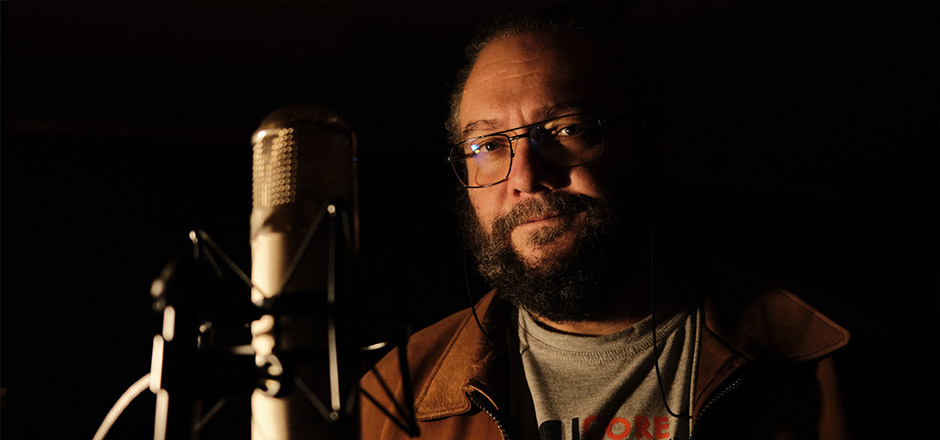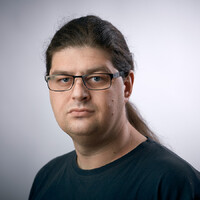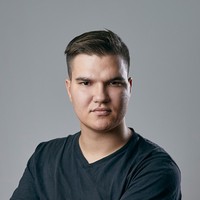Marko Kon: The Musical Wizard from Nusiceva street
Whenever you hear a passing song in Serbian on the radio or TV, there’s a good chance that Marko Kon is behind it.
This composer, music producer, songwriter, performer and actor speaks for 011info about the time he wrote his first song and what it takes to make a hit.
How did Marko Kon begin his journey?
Like most Belgraders, I was born in the “Narodni front” hospital, and from there I was brought to Nusiceva street where we used to live. My earliest memories date back to the early 70’s. I’m actually not sure anymore if those are my own memories, or just stories I’d been told.
In the area where we lived up until 1984, there was the so-called Cavketov pass - of course known under a different name back then - and the exit to the Nikole Pasica square which I used to call the Marx and Engels Square for the longest time out of habit. I had just internalized it that way, without any political subtext. It was one of those things you’d say as a kid before you think about them. I spent my childhood in a small park near the Assembly building. My neighborhood ranged from there and Drinka Pavlovic school to Pionirski park.
What are your childhood memories like?
Very, very distant for one thing.
But the human brain is a marvel. We remember nice things much more than the bad ones. The best example for this was the time I spent serving in the military. I don’t remember ever feeling worse than when I was in the army. But when I remember it today, I can only recall nice and fun times and the bad ones take a bit of effort to come back.
When it comes to my time in junior school, I remember nothing bad. I’d like to say that sentence that’s a glowing example of a generalization, which is that it was a much better and carefree time. I’m not sure that it actually was, but that’s how I subjectively and emotionally experience and remember it.
Back then, I didn’t have a care in the world, except going to the park and then back home for some of mom’s cooking.
If you look at it as a parent, it feels like today it’s scarier, more dangerous, less secure. But I’m sure that my kids will talk about their childhoods in 40 years as a carefree period because that’s how they’re experiencing it.
Young people think they will live forever and they feel the need to move in packs, the need to belong. When I was 18 years old, I knew 5000 people with raised glasses. Now, if I have to invite 10 people somewhere, I have to keep track of who isn’t speaking with whom. :)
I love the old Belgrade and the Belgrade that came before me. I think that every era carries with it a fantastic moment that’s unique to it. But I don’t long for anything from the past - I look forward to the future instead. I try not to fall into that trap of my generation which is “Today’s kids have it good because they don’t know any better”. That’s not true at all, or it’s absolutely true and relevant to every generation.
For example in terms of music, one generation always claims that the other listens to terrible music. It’s always been that way. My father was shocked by my taste in music. My generation is shocked by their childrens’ and their children will think theirs is awful.
I have kids poking around in my studio today who were talking a few years back about the Partibrejkers concert and wondering who was still listening to them. One of them said “Oh, it’s all those old people in parkas”.
I wear a parka because that was in fashion when I was young. The older people back then wore tweed coats. But those old people wore those coats when they were 20 too. Similarly, kids today will wear the same thing in their 50’s that they wear today, and then that will be “old people fashion”, which is great.
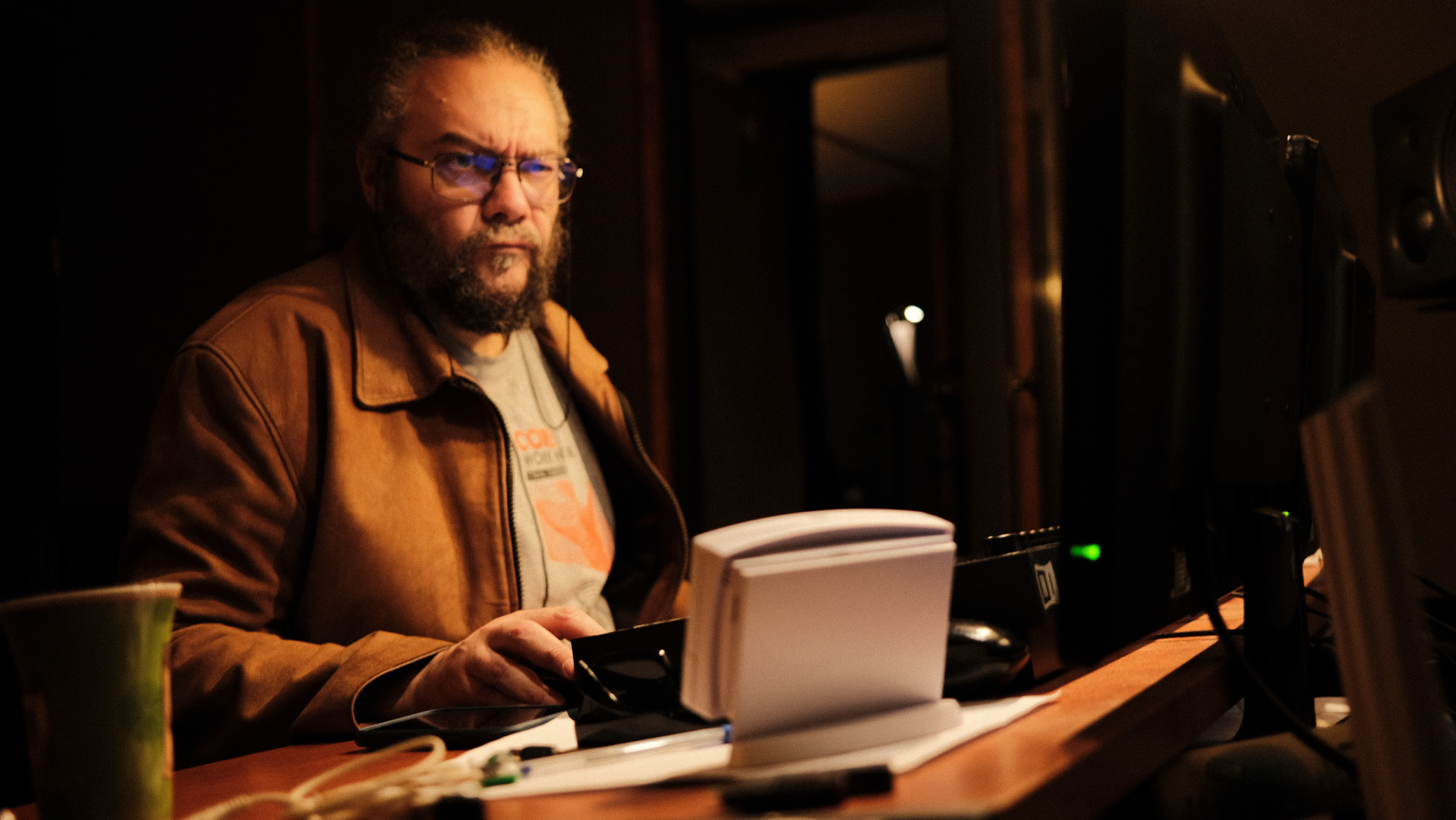
How did you get into music?
I wrote my first song in 1st grade of elementary school. It was childish, of course. I started my first band in 3rd grade, we played on rackets. That’s how the idea was born. The band lasted until the end of junior school where we’d go around the playground telling other kids we were a band, while of course nothing ever happened on that front.
I had my first real band at the start of high school, after I’d gotten an electric guitar as a gift from my parents as a reward for my Vukova diploma. Then my grades started going down.
There were people who were endlessly talented, played beautiful music but none of them except for myself continued to work in music. Today they’re all serious adults, working in serious professions.
Your uncle was military and your father was an engineer. It’s interesting that there’s an entire generation of musicians belonging to the “New wave” who all had parents or relatives in uniforms. Were you also a rebel?
As a kid I was a punk kid because punk was the alternative to alternative. I was the type who always loved to take things too far.
Both in America, its country of origin, and England, where it matured, Punk was a rebellious genre of music that resonated with the lower working classes. In our countries, punk was adopted by kids from stable families of officials and military personnel.
The social situation in the system we had in SFRJ was such that original punk couldn’t develop because in the Communist society, with all its flaws, the human as an individual was completely protected. You couldn’t get fired, it was almost impossible. However, I would connect our brand of punk from back then to today’s street style music, alternative hip-hop, trep...those are the music genres that originate from the “lower dregs” of society where people have a fierce need to truly rebel, and it took flight with us.
For example, the soundtrack of the movie “Juzni vetar” was the rebellious music of the younger generation. Their rebellion was completely different to my generation’s. They are also protesting the establishment, but they use their own means.
While the SFRJ punk had that “Be ugly, smart and young” as Contina (Nebojsa COnkic) from the “Pekinska patka” used to sing, the rebellion in today’s kids lies in their refusal to be ordinary and poor, even if it’s fake. That’s also rebellion. Just like the struggle against consumerism, only that’s a bit more muddled. They refuse to be the same as their parents. In a sociology terms, that’s completely equal. It’s in every kid’s nature to annoy their parents with their music choices. When we pass by a school that’s celebrating a prom and people from my generation are aghast because of the music being played, I’m grinning ear to ear. Because imagine if they liked the same music we did. How sad would that have been to them? That would’ve been just like if I liked the same music my father danced to when he graduated.
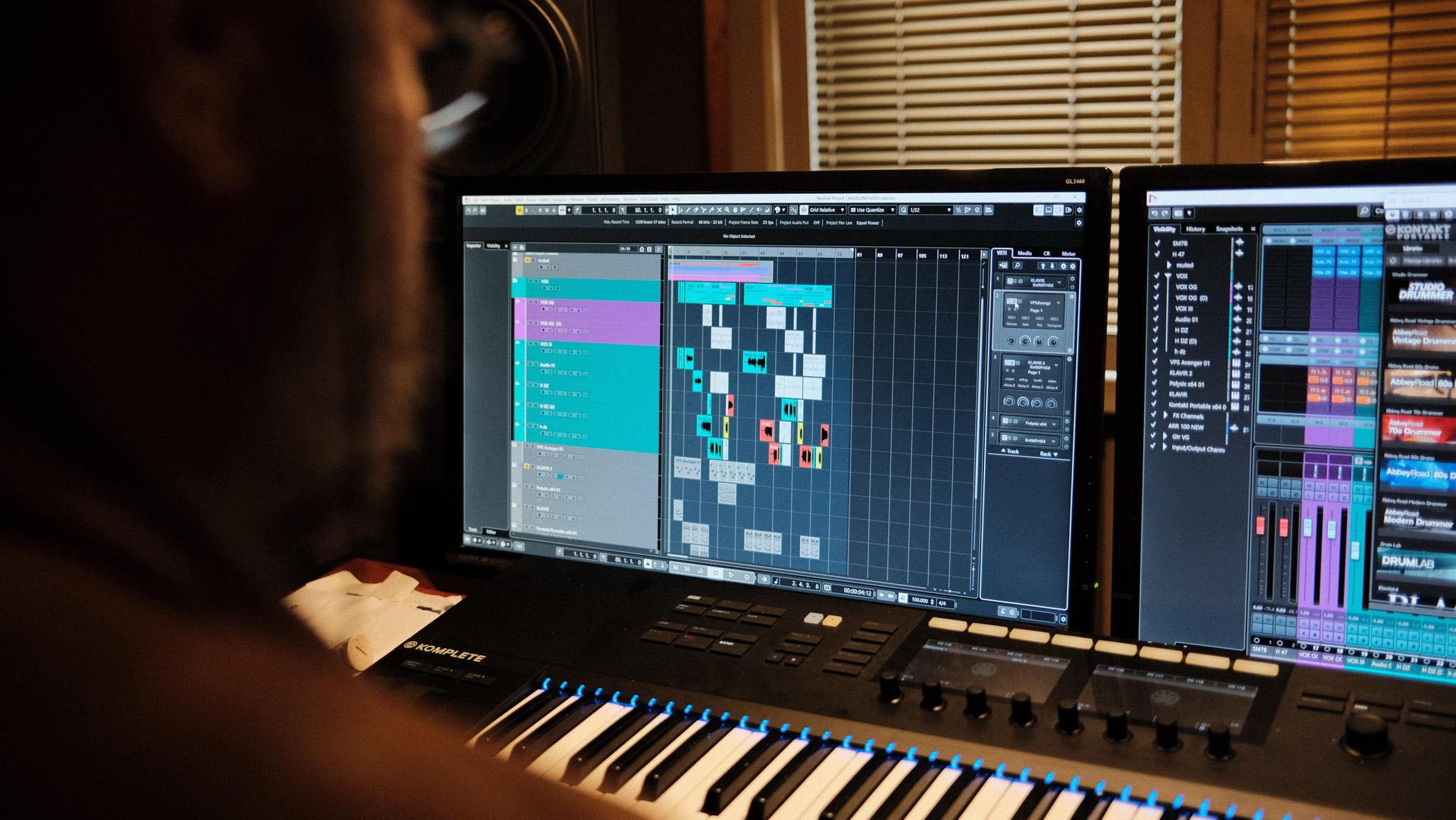
How much did the fact that you grew up in the street named after Branislav Nusic foreshadow the satirical-comical-entertaining character of your future life?
I never thought about it that way, but I really like that. I’ll put that in my imaginary autobiography.
We learn about Nusic as a writer very early on. I remember that story when kids decided to eat matches and they tear off the igniting bit because that part is somehow more gross than the rest. When you live in Nusiceva street and read his work, you feel closer to him. So you’re right that it did define me in some way. Even the original offices of “Osisani jez” was in Nusiceva street.
The neighborhood where you grew up gave us many people who did exciting things in the music scene. There was also the famous tavern Sumatovac nearby where many famous names gathered.
And also Radio Belgrade is there, that’s the main thing. You go down Nusiceva to Makedonska street and you run into Sumatovac tavern which was known as the “Music scene cafe”. Everyone who ever worked in music went there. They made deals, traded songs, sold used cars. My audio recordist Dragan Vukicevic Vuksa with whom I worked in early 21st century bought a porsche back in the day from Laza Ristovski in Sumatovac.
It was there that you could see in one place Miroslav Ilic and Oliver Mandic, so it was a very important location. Then again to me Sumatovac was a place I passed every day. It’s interesting that the relationship between Belgraders and their celebrities is really specific and exists maybe only in Sarajevo and nowhere else. We were somehow taught that it’s rude to have a strong reaction to seeing a celebrity from the very start.
That’s why when I’d read interviews of serious Hollywood stars who visited Belgrade, they all say that’s what delighted them the most. For example, Gerard Butler said that it’s a fantastic thing. He’d sit in a cafe and it would be very obvious that everyone recognized him and...nothing happened. It’s just not in our nature to go over to people and ask for autographs. It makes me think of when as a kid I’d see right in front of my house “Sedmorica mladih” and Nesa leptir. You get used to it. Those are people you like, you see on TV and enjoy their performances.
We all loved Nesa and looked forward to seeing him, but we never thought it was okay to pester him in the street. He died too young. I only realize now how young he was. I didn’t think that way when I was a kid.
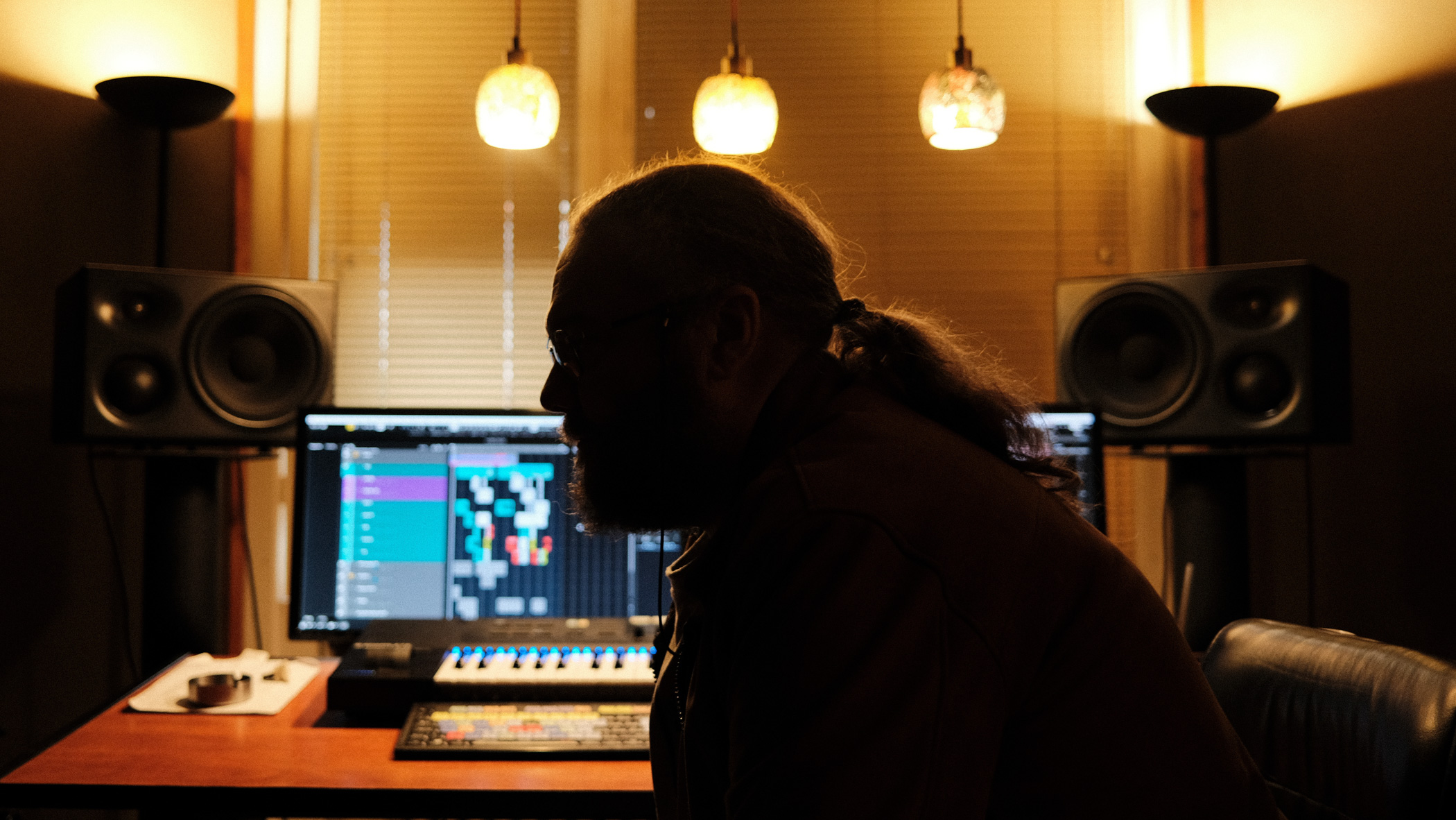
Speaking of age, your birthday is coming up. Do you think about times passed?
I am a man who looks to the future. I look forward to coming years. The difference compared to my youth is that now I can plan certain things in more detail. Now I’m better at planning and plotting my route and goals. When I was younger, sometimes that would turn into daydreaming. Now I don’t have any outrageous wishes, just plans. I stopped daydreaming. Rather, if I want something, I turn it into a plan that I realize.
I’m waiting to get a bit older, like 30 or 40 years, since I’m still too young, so I can start writing memoirs.
I like to be ambitious, so I don’t think I’ve peaked yet, but that the big things are yet to come.
It is to be expected that a man who plays seven instruments is ambitious.
My ambition is strange. I have a thirst for new knowledge. I play multiple instruments, but actually my skill is only serviceable, I haven’t mastered any of them because the repetitiveness is killing me. I can play quite a few things on the guitar, even a whole concert if I have to, but I hate practising.
What’s interesting is that I discover how to get to a goal, and later when I have to carry it out, I don’t have the patience to go through with it because I’ve already solved the riddle in my head. It’s the mental challenge I’m drawn to.
In general I like solving problems, so when I find a solution it doesn’t interest me to become perfect at it. That’s always been my approach to everything. I figured out how to get what I need out of my guitar. I don’t have to be the best at it - there’s people I can call when I need something played, and I’ll explain to them how.
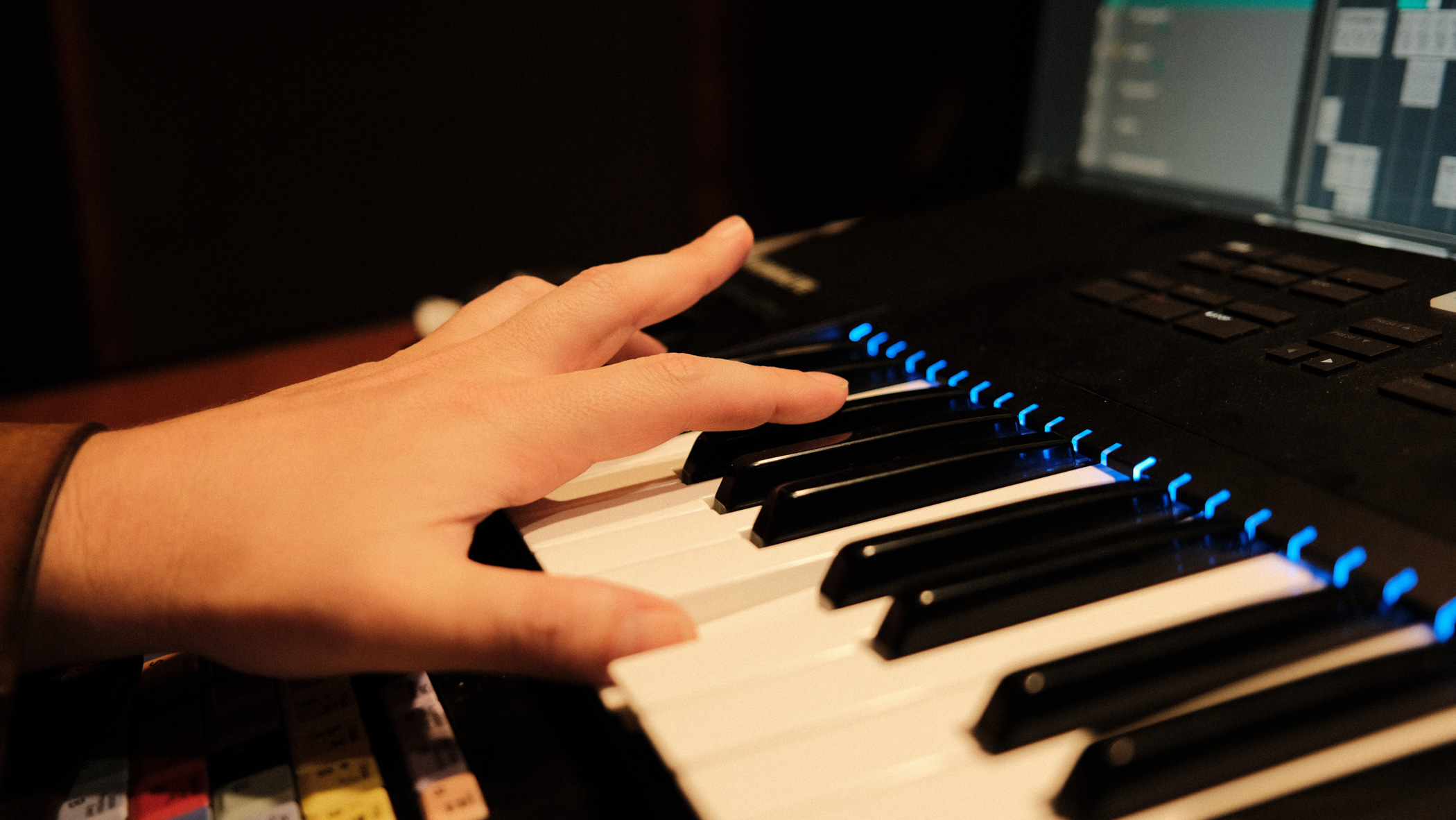
The list of everything you do is very long - you make arrangements, write songs, compose, act, work as a TV show host...how would you describe yourself?
I think it’s best to say I’m a “multimedia personality”, but that’s probably the most worn out title in the world.
In general I like to say I’m a composer, but that’s not a profession, it’s a title. Anyone can write a song, but not everyone can compose or call themselves a composer. It’s a thing you have to earn and it’s a big deal.
I think music producer is my main profession. But then there’s a problem in terminology because the word producer can mean so many things. If we translate it directly, it means someone who makes things, which doesn’t suit what I actually do. The Russian term for a musical producer describes my work much more closely, they call it something like “sound director”.
Everything you mentioned are things I’ve worked in - I also wrote lyrics, but always as a producer and someone who has a vision for the full complete number and knows what kind of lyrics it needs. I only wrote song lyrics alone a few times like other writers usually do.
Acting, on the other hand, is a kind of scene art that’s very close to any kind of performative art, including music. People I’ve worked with have told me I’m very talented. Now, it’s lovely when someone tells a 50 years old man that he’s talented. :) Usually you say that to kids whose talent has yet to grow into something more defined.
You have produced and composed music for various genres, medias and performers. What’s your favorite type of work?
I’m feeling great about composing film music right now. I composed movie tracks for the first time in 1994 for “Paket aranzman”, and then I took a huge break. The first next film I worked on was “Mali Budo” in 2014. I just didn’t have the time.
After 25 years working in the music scene, making film music is liberating because movie music doesn’t go under the same pressure that normal songs do, that they have to become a hit.
In the music scene, things have changed drastically since my days. We used to make record albums that were an art piece in themselves and we always tried to make the entire thing compact and coherent and to make a performer out of that. We did more work building careers than making songs.
Then everything changed a lot and we came to a time of singles. Now it’s a huge event if someone drops an album because you just don’t do that nowadays. But the pressure is even bigger to make every single song a hit. If it isn’t, then you have a problem.
When it comes to movie music, you should have a hit song in the movie, but it’s not the most important part. It’s a song. The better the movie and the song are, the better they’ll do. There’s almost no movie that doesn’t feature a hit song. But the best movie music is the kind you don’t notice until it goes out. Then you wonder what’s happening, the movie is unwatchable.
Movie music follows its own rules and postulates that are relatively new to me, so it’s all very exciting to me and I’m doing well with it. I find it very fulfilling in this period of my life.
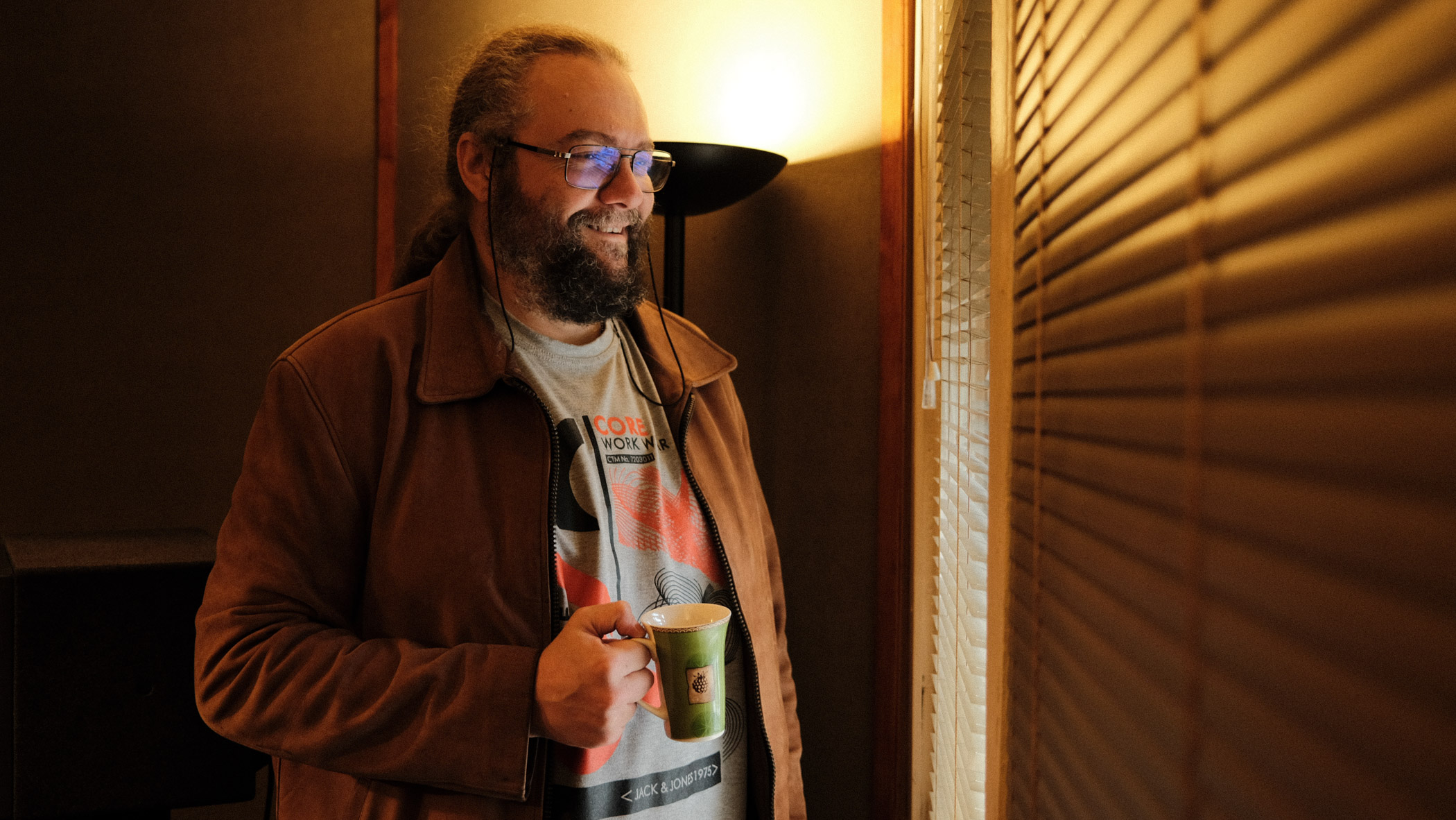
Musicians usually say that you can’t make a hit, it just happens and depends on many factors.
That’s true. It depends, of course, on the tone of the song, the lyrics, the arrangement that has to be made in a certain trend. It depends on who’s performing it and how. And indirectly it depends on many other things too.
One thing I noticed in these corona times is that we don’t really have true hits. Views on YouTube have gone down significantly so music has less impact than in other periods of time. We can draw a conclusion why it is so. Popular music is the soundtrack of our lives. The songs we love aren’t our favorites because of the songs themselves, but because of the situations in which we hear them.
I have a lot of love for the song that was playing on the radio when I had my first kiss and that’s true for anyone. To us, the authors, it’s very important that our song is playing on the radio during many people’s first kisses.
Now that we’re isolated, there’s nothing to connect the songs with. For example, if the song is about girls having a girls’ night out on the town and we’re sitting at home isolated, how are you supposed to enjoy that song? When songs are usually made to get us moving and jumping. So there’s no real hits.
Another thing I believe is that there will be implications. This will all pass at some point, but the songs made in this period won’t be listened to after the pandemic pressure lifts, especially from the medical workers. When we can go out on the town again, we won’t look for songs made in 2020 and 2021 because we’ll have bad memories related to them.
We don’t listen to the greatest hits from the bombing days, do we? We remember them, and sometimes we can play them for someone if we want to show them what a time that was, but nobody listens to those songs on their own accord.
You’ve been around for a long time and you’ve gone through many things - from the rackets to YouTube. You’ve gone through a variety of new technologies and work methods and things continue to change even faster.
Everything changes - the techniques of making the songs, of placing them in the market. When I was starting off, all you had to do was show up in the “Sunday afternoon” show in RTV Belgrade and the entire Yugoslavia would know your name. But it was incredibly difficult to get there. It was a serious, serious process where you had to earn your place.
Nowadays, appearing on TV is not a big deal, let alone a social platform. It doesn’t mean anything anymore. There are 60.000 new songs on Spotify every day. Now we’re lacking a music director, someone who would tell you “listen to this”. There was a time when those directors annoyed me because they couldn’t recognize new trends. And now I missed them telling me “this is good”.
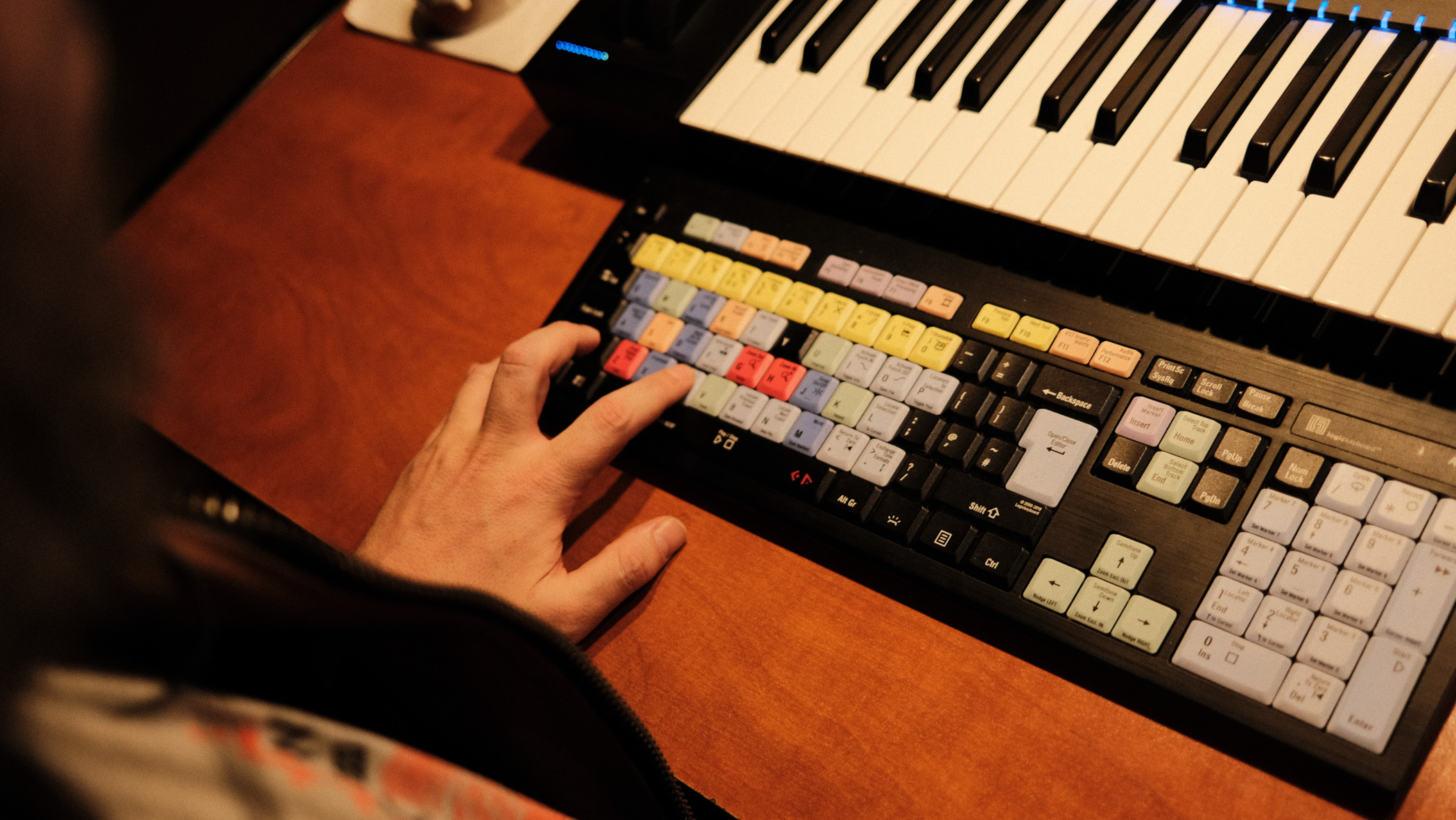
Is it more difficult to work now than it was decades ago?
It’s about the same. Of course technology and techniques are different, but the gist of it is the same. It used to take a lot of effort to get on TV, and now it takes a lot of effort to stand out .It boils down to the same thing.
Of course, if I had my knowledge of today back then...I’d immediately go back in time and take Europe by storm with hit songs. Now I know what it takes. But if someone erased my memories and then brought me back to 1991, I’m not so sure.
What was the big breakthrough of your career?
I think the year 1994 was key, when I worked with Gru on his album “Pravo u raj”. In 1995 we finished “Kralj kokaina”, “Bunda bunda” and “Idemo na Mars”.
Back then, everyone knew those songs and on the other hand, every time a new hit single came it was assumed that Kon was behind it.
We did our best, Kobac and me, to do things differently than everyone else. I think we had a bit more structure than others. Back in the day Radovan and Zika from the band Zana were in Futa’s studio, talking, and then Radovan said to Zika “What makes these two better than others? Is it that Kon plays the guitar and doesn’t need a guitarist?”
Actually, the guitar went out of fashion in the 90’s. The fact that I was making songs using the guitar created a fresh, different sound compared to the songs made on keyboards. When you hold a guitar it pulls you in a different direction. I don’t know how to explain it.
On the other hand, you could make modern music of the 90’s in your home. That’s how “House” music was born. It was very liberating. You sit at your computer with your little speakers and make a functional song. But due to the circumstances of being in contact with some older people, we had decided from the start to approach music traditionally. That’s why we went to professional studios even though in terms of technologies we didn’t have to. That made the difference you can still hear 25 years later.
A lot of credit goes to Srdjan Colic “Mobi Dik”. He insisted we work in studios, as well as his colleague Srdjan Babovic. They taught us the ropes and unlike others who only recorded vocals in studios, we did everything there.
What number would you highlight from your opus and why?
It’s such a long period that it’s impossible for me to highlight any one thing. I love “Kralj kokaina” because that was the first megahit that I was involved in, though it was Srdjan’s song and his lyrics. It’s still very special to me too.
I also love the Flamingos as a whole project. Not enough time has passed, but when that comes back as a retro style, people will realize how fantastic the production and music was. There are songs that people don’t know yet that are genius.
There was also a fantastic cooperation with Mira Skoric, then Dragana Mirkovic - amazing vocalist - then Hari Mata Hari...I’m not going to start listing, I’ll forget many people.
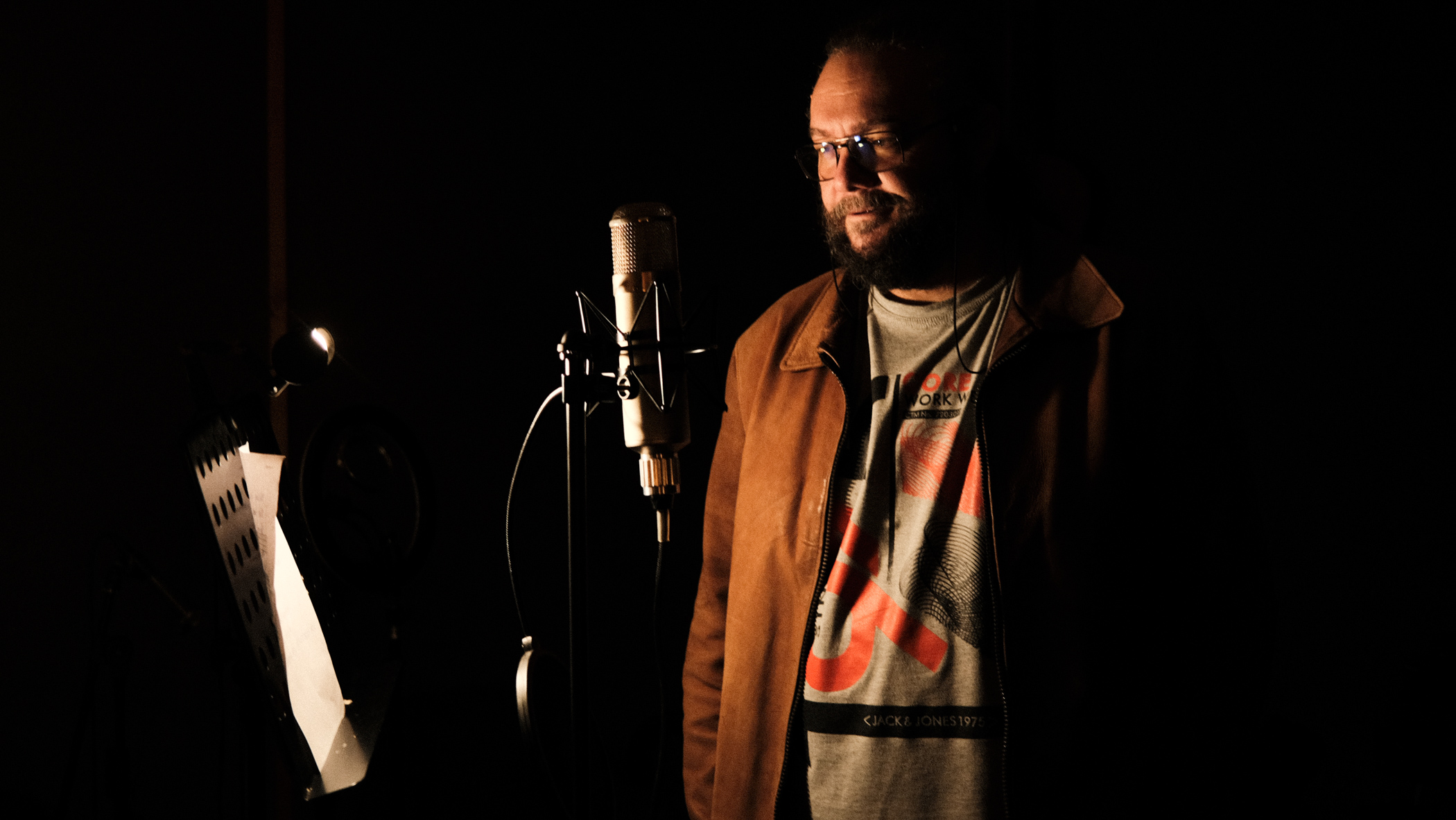
What is your favorite genre to work on?
There is no such thing. Favorite music genre is something you give up when you start working in music professionally. I stopped listening to music casually. When you play me a new song, I just listen to what the bass is doing and what’s crackling. I get my kicks from entirely different things. I go to the club and listen to how low the bass is. I don’t listen to lyrics, unless I focus, and they are very important.
Back in the day I’d sit with Dragan Brajovic who’d made a song for Zeljko Samardzic who was in USA at the time. He’d send him the lyrics in a text message. I don’t even remember what song it was, but the response came “Take it to Abadic to make arrangements”. Later Zeljko told me “there’s no way the melody can be bad with such lovely lyrics”. And he was right, everything fell in its place.
You also work internationally.
Yes, more than people think but less than I’d like. I mixed a song for Avicii. I was about to start a great communication with him when he passed away. I did a lot of localization for cartoons published by Fox, Disney, Blue Sky, mostly as a producer and actor here and there. It’s direct communication with foreigners who are on a whole new level.
Right now I’m composing music for a Greek movie and I started work on a Czech sci-fi feature with an amazing script. Though the pandemic halted development right now. I’m also cooperating with a South Korean producer who worked on Parasite and I’m also working on music for a sequel to “Juzni vetar”.
We shouldn’t forget all the work you’ve done for Eurovision, including a performance with the song “Cipela” in 2009. What did this mean for your career?
I was doing an arrangement for Montenegro in 2008 in Belgrade and in 2010 I worked as producer for Bosnia and in 2009 for the Flamingos.
Eurovision is a great TV program. You don’t make big business on Eurovision. We wrap it all up and go home. Contracts and agreements are rarely signed there, it just doesn’t happen. Eurovision is a self-sufficient ecosystem.
What are your plans for the future?
We’ve worked for a while now with our two contracts Andjelina and Tara. They are two young performers who are very big on YouTube already with millions of views. We’ve already recorded Tara’s album and now we’re waiting for the right time. We also work with Jenni Martin who played in the movie “Montevideo, vidimo se”. There’s also Donnie & Vasco who are starting with two numbers from “Juzni vetar” and then moving forward.
We make songs for all sorts of performers, but I feel bad publishing songs in these times when people can’t celebrate with them.
What message would you give to young people who’d like to follow in your footsteps?
You must have a ton of patience and be ready to fail often and make many mistakes. To trip and fall. Then you dust yourself off and go on. There’s no other trick to it, except persistence and dedication.




 6 ℃
6 ℃

